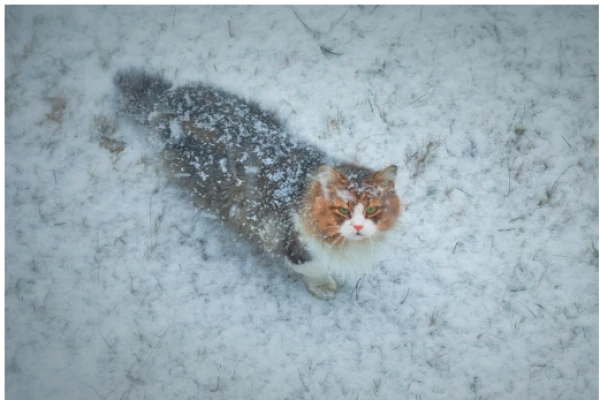
Meteorologists warn: an abnormally cold winter is approaching the European continent. Moreover, this winter could become the coldest in the last twenty years.
Forecasts indicate that the upcoming winter in Europe - and thus in Latvia - could become one of the coldest in recent decades. According to long-term observations, severe frosts occur approximately once every ten years, while particularly harsh winters happen once every twenty years. The current climatic cycle is approaching this period, which increases the likelihood of extreme temperatures.
It is expected that thermometer readings in Eastern and Northern Europe will drop to -25 °C. It will also get colder in Southern Europe. Therefore, experts estimate that the winter of 2025–2026 is expected to be significantly colder than the previous one.
Climatologists associate the possible cooling with several factors. Among them are changes in air mass circulation, the activation of Arctic anticyclones, and a decrease in temperature in the Atlantic, which affects the overall balance of atmospheric flows. Such processes lead to the formation of stable cold zones that can persist for several weeks.
Weather services note that similar anomalies have already been observed in Europe in the early 2000s. At that time, frosts reached record levels, and temperatures in the southern part of the continent dropped below zero for several weeks. If the forecasts are confirmed, this winter could become the coldest in the last twenty years.
Meteorologists recommend that residents of Europe prepare in advance for possible cooling. Experts advise paying attention to heating systems, insulating homes, and ensuring the reliability of infrastructure. Timely measures will help mitigate the consequences of abnormal temperatures and avoid disruptions in utility networks.
Despite the alarming forecasts, scientists emphasize that the exact scenarios for winter can change. The final weather picture will be influenced by fluctuations in ocean temperatures, wind patterns, and atmospheric pressure dynamics. However, most climate models indicate that the upcoming winter will be colder than usual, and in some places, extremely frosty.
Such a scenario is also confirmed by data from previous years. In recent seasons, meteorologists have recorded instability in temperature regimes: after warm winters, sharp cold snaps follow, which may indicate a transition of climatic systems to a new cycle.
Forecasts suggest that the peak of the frosts will occur in January and the first half of February. During this period, prolonged low-temperature spells and heavy snowfall are likely. Regions with a humid maritime climate, where severe cold is rare, will be the most vulnerable.
If trends persist, the European part of the continent may experience a winter comparable in severity to that of 2006, when temperatures in major cities dropped below -20 °C. Experts believe that such winters will occur more frequently due to changes in global climatic processes.















Leave a comment